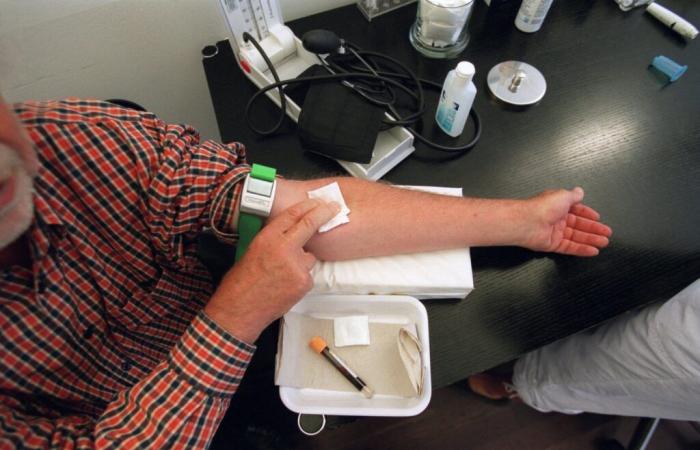Prostate cancer affects nearly 7,400 men in Switzerland each year, making it the most common cancer in men. This is more than breast cancer which affects 6,000 women per year. “In the Jura, we will record more than 70 positive biopsies in 2024,” recalled Séverine Leisten, referring nurse at the Jura Prostate Center. If the figures may seem frightening, the words of Dr Adile Ahmed wants to be reassuring. “It’s a disease that we understand better. To treat it, you shouldn’t be afraid to talk about it and get tested,” explains the urologist working at the Jura Hospital. Especially since prostate cancer is often asymptomatic.
“It is advisable to get screened every two years from the age of 50 to 75, and even beyond this age,” he emphasizes. If there is a genetic predisposition or a history of cancer in the family, it is recommended to get tested at age 45. This first examination consists of a blood test which can be supplemented by a rectal exam. These examinations give a first indication. “Only a prostate biopsy can diagnose this cancer,” specifies the doctor.
Three options discussed
To treat prostate cancer, three solutions have been presented: active surveillance, surgery and radiotherapy. “Active surveillance is a recommended treatment option for low-risk prostate cancer. Examinations are carried out every six months to monitor the progress of the disease, which requires mutual trust between the patient and the doctor treating”, notes the Dr Ahmed. Surgery involves the removal of the prostate, radiotherapy is a radioactive radiology technique.
“The chances of recovery between surgery and radiotherapy are identical. The choice of treatment depends on the state of health and the age of the patient,” explains Dr.r Jens Lustenberger, specialist in radiation oncology at the University Hospital Basel. This cancer is curable. The 5-year survival rate is 91%.
A need to talk
Currently, there are concerns about these treatments due to side effects, including erectile dysfunction and incontinence. “I wanted something else. I needed time to understand and accept the diagnosis. It was inconceivable for me to say goodbye to my sex life,” testified a former patient, now completely cured. If speaking out is still difficult, it remains necessary. “I encourage you to move forward and find someone you trust. You have to talk about it, exchange ideas between men,” he continues.
Active for a year, the “CaP Jura” support group is one way. Over the past year, eight meetings have been held, bringing together around twenty people. The collective wants to develop further. An association has also been created to offer other activities.
People interested in the discussion group can contact Vincent Bédat by email at or find out more on the website www.capjura.ch.
Health






